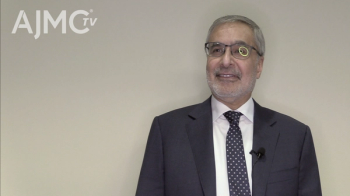
Dr Stefan Anker: Empagliflozin Improves HFpEF-Related Outcomes Regardless of Diabetes Status
The composite end point of cardiovascular death and heart failure hospitalization was reduced by 21%, which is highly statistically significant and clinically meaningful, noted Stefan Anker, MD, PhD, FESC, principal investigator of EMPEROR-Preserved.
First-of-their-kind evidence-based results show the composite end point of cardiovascular death and heart failure hospitalization was reduced by 21% with empagliflozin, which is highly statistically significant and clinically meaningful. These are all-around good results for patients with heart failure with preserved ejection fraction (HFpEF), noted Stefan Anker, MD, PhD, FESC, professor of cardiology, Department of Cardiology, Charité Campus Virchow Clinic, Berlin, Germany.
Anker, principal investigator of EMPEROR-Preserved, presented “EMPEROR-Preserved: Effect of Empagliflozin on Cardiovascular Death and Heart Failure Hospitalisations in Patients With Heart Failure With a Preserved Ejection Fraction, With and Without Diabetes” today at
Transcript
Can you tell us about your presentation on the EMPEROR-Preserved results?
EMPEROR-Preserved is a trial of empagliflozin vs placebo in patients with heart failure and a preserved ejection fraction. Now, your audience should know heart failure with a preserved ejection fraction, that is a very large group of patients—millions and millions of patients worldwide. There’s an estimate saying it's about 20 or 30 million. And so far we have no evidence-based, clear-cut winning trial evidence for any drug to bring about reduction in event rates, bring about benefits to these patients.
Now, we are treating them already, in many cases, with RAAS [renin-angiotensin-aldosterone system] inhibitors or beta-blockers. That is on one hand based on the assumption that we are treating their comorbidities and on the other hand on the assumption that maybe what works in HFrEF [heart failure with reduced ejection fraction] should also work in HFpEF [heart failure with preserved ejection fraction], particularly in the lower ranges of ejection fraction there. But really, in terms of evidence-based medicine that we would like to practice, we have nothing yet. But now we have empagliflozin and the results of EMPEROR-Preserved.
Now, if you look specifically into the results of that trial, in that trial over a period of 26 months of follow-up, recruiting patients with an ejection fraction above 40%, with and without diabetes, 45% of them being women, average ejection fraction in the end 54%, when we follow these patients and look for the primary outcome of cardiovascular death and heart failure hospitalization, we found a 21% reduction, highly statistically significant with a P value of .0003. And this for the first time represents a clinically meaningful and statistically highly significant result in HFpEF patients for any drug ever tested.
Now importantly, the medicine also reduced events regardless of whether or not diabetes was there or not; whether the patients had an ejection fraction between 40% and 50%, 50% and 60%, or above 60%—there was an interaction P value for trend testing of 0.21 for ejection fraction for the primary end point—and also it works basically in men and women with HFpEF. So taken together, looking at these subgroups and other subgroups, we can say that none of the prespecified subgroups tells us anything that there is a subgroup of patients where we shouldn't use this. So in HFpEF patients, empagliflozin represents a medicine that reduces heart outcomes.
If you look specifically for the components of the primary end point, then this is particularly led by a reduction in heart failure hospitalization: first heart failure hospitalization, 29% reduced; first and recurrent heart failure hospitalizations, 27% reduced. Again, highly significant. Cardiovascular mortality, in addition, there is a 9% reduction that doesn't reach significance but it definitely goes in the right direction and contributes overall. And lastly, I would like to add also kidney function is protected. The EGFR [estimated glomerular filtration rate] slope is less declining in patients receiving empagliflozin, quality of life measures improve, and also New York Heart class improves.
So all around good results for the HFpEF patients overall and for all subgroups of them.
Newsletter
Stay ahead of policy, cost, and value—subscribe to AJMC for expert insights at the intersection of clinical care and health economics.
















